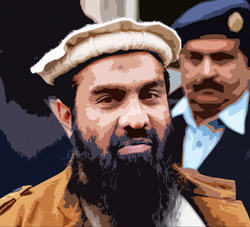INDIAN ARMED FORCES CHIEFS ON OUR RELENTLESS AND FOCUSED PUBLISHING EFFORTS

The insightful articles, inspiring narrations and analytical perspectives presented by the Editorial Team, establish an alluring connect with the reader. My compliments and best wishes to SP Guide Publications.

"Over the past 60 years, the growth of SP Guide Publications has mirrored the rising stature of Indian Navy. Its well-researched and informative magazines on Defence and Aerospace sector have served to shape an educated opinion of our military personnel, policy makers and the public alike. I wish SP's Publication team continued success, fair winds and following seas in all future endeavour!"

Since, its inception in 1964, SP Guide Publications has consistently demonstrated commitment to high-quality journalism in the aerospace and defence sectors, earning a well-deserved reputation as Asia's largest media house in this domain. I wish SP Guide Publications continued success in its pursuit of excellence.
- Operation Sindoor: Resolute yet Restrained
- India’s Operation Sindoor Sends a Clear Message to Terror and the World – ‘ZERO TOLERANCE’
- Japan and India set forth a defence cooperation consultancy framework, talks on tank and jet engines
- Terrorist Attack in Pahalgam in Kashmir: Unfolding a long surgical war against PAK
- Lt General Pratik Sharma takes over Command of Indian Army's Northern Command
Protecting Lakhvi — China reaffirms she is no friend of India
 |
By Lt. General P.C. Katoch (Retd) Former Director General of Information Systems, Indian Army |
Writing in the Nikkei Asian Review on June 11, Katsuji Nakazawa wrote that Chinese President Xi Jinping is haunted by fears of assassination. He writes that tensions have been running high within the Communist Party in early March following a major reshuffle of security officials responsible for protecting Xi and other leaders, and that in a sign that he feared for his own safety, Xi abruptly replaced top officials of the Communist Party’s Central Security Bureau and the Beijing municipal bureau of public safety. Nakazawa, quoting a person close to the matter said, “In the past few years, there were nearly 20 occasions in which Xi encountered possible assassination attempts”.

The sudden and sweeping reshuffle indicates Xi’s fears albeit it was Xi’s vigorous efforts to topple political foes, in the name of anti-corruption campaign, that have left him distressed and sleepless. Earlier, it was also being rumoured that the Chinese Border Guards incursions into Indian Territory were local actions, not with concurrence of the Chinese hierarchy albeit this appeared deliberate misinformation since China’s Border Guard Divisions are under command the PLA and like any other organization in China are closely monitored and orchestrated by the CCP representatives posted within each organization.
China’s strategy has always been replete with ambiguity and deceit despite her peace homilies. But all told, Xi Jinping is a powerful leader and much was hoped that in concert with Prime Minister Narendra Modi, he would take the India-China relationship to a new high of peaceful co-existence and economic prosperity for both countries and the region. Both during his visit to India and PM Modi’s visit to China, Xi talked of peace, while the Chinese ambassador to India too has been harping on peace while selling Chinese wares. However, now with one single stroke Xi Jinping has bared his fangs – through the Chinese action of blocking.
India's move in the UN for action against Pakistan for the release of 26/11 mastermind Zaki Ur Rehman Lakhvi from jail last month. The UN Sanctions Committee, which met at India's request, was to seek a clarification from Pakistan on Lakhvi's release in the 26/11 trial but China blocked the move on grounds that India did not provide sufficient information. Lakhvi’s release was flashed over the international media and he was rearrested after vehement protests by India, so what proof is China talking about? In fact, Lakhvi's release was viewed with concern in US, Russia, France and Germany. Washington has demanded his re-arrest. India's permanent representative to the UN, Asoke Mukherjee, had written to the UN's Sanctions' Committee terming Lakhvi's release a violation of a UN resolution on terrorist organizations and groups, including the al Qaeda and the Lashkar-e-Taiba (LeT), wherever located. Lakhvi, close relative of LeT founder and Jamaat-Ud Dawa (JuD) chief Hafiz Saeed , was arrested in December 2006 faces trial, along with six others, over the attack in 2008 in Mumbai, in which 166 people were killed.
However, the case has made little progress since 2006 because of soft-peddling by Pakistan despite India’s repeated reiteration that ample evidence has been provided to Pakistan to convict the accused. On the contrary, both Lakhvi and Hafiz Saeed are heroes in Pakistan with the country reeking in radicalism and institutionalized policy of state terrorism. Though China’s ‘higher than the mountains, deeper than the seas’ friendship with Pakistan is well known, by her latest move to protect Lakhvi at the UN, China has blatantly indicated she has no compunctions in abetting terror. Far from being a friend of India, she would rather remain a snake in the grass. Learning from the West, particularly US and NATO, China is making major investments in sub-conventional warfare. It is no more the case of only supporting Pakistan’s terrorism but China is going pro-active for using Taliban in Afghanistan. Her support to Nepalese and Indian Maoists, PLA in Manipur, hobnobbing with Naga insurgents, support to ULFA, creation of the United Liberation Front of West, South, East Asia (WSEA) and lethal arming of the United State Wa Army (USWA) in Manipur shows China will Indeed be a thorn in the flesh of India. Earlier, we acknowledge this and take countermeasures, the better.





